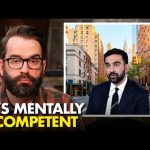Federal prosecutors revealed a sweeping indictment that hit the heart of Kensington’s open-air drug market, charging 33 alleged members of the Weymouth Street Drug Trafficking Organization for operating on the 3100 block and surrounding corners. This was no small crackdown — the indictment traces a criminal enterprise allegedly running from 2016 through October 2025 and accuses leaders of organizing shifts, collecting “rent” from sellers, and trafficking fentanyl, heroin, crack, and cocaine.
Federal and local law enforcement executed coordinated actions that resulted in dozens of arrests and the seizure of significant narcotics and weapons, removing violent actors who terrorized residents for years. Officials say 24 defendants were arrested on the day of the operation, with others already in custody and one person still at large, and agents recovered hundreds of grams of fentanyl alongside multiple firearms.
This takedown proves that when federal agents and local cops work shoulder-to-shoulder, they can dismantle entire criminal enterprises rather than treating crime as a series of isolated, unconnected incidents. FBI leadership called the action a model for reclaiming American cities, and prosecutors described it as among the largest federal cases prosecuted in the district this century — praise that is deserved after years of watching neighborhoods be hollowed out by drug cartels operating openly on city blocks.
Let’s be blunt: this is what real law-and-order looks like, not the token sweeps and press releases some city governments settle for while allowing open-air markets to metastasize. For years Kensington residents complained that elected officials prioritized optics and social programs over decisive enforcement that actually protects citizens and business owners, and those excuses ran out the day federal agents moved in. No program plans, no earnest think-tank panels — just arrests and seizures that disrupted a violent enterprise.
The criminal enterprise prosecutors described didn’t just sell poison — it enforced its will through shootings, assaults, and intimidation, creating a climate where witnesses feared coming forward and everyday life became dangerous. Families, shop owners, and ambulatory workers deserve streets where walking to the corner store isn’t a gamble; reclaiming that safety requires the kind of sustained law enforcement focus we just saw.
This victory should not be a one-off moment to bask in headlines and move on; it must be a template. Federal resources must keep supporting local partners, and cities must stop punting on consequences for repeat violent offenders with leniency that amounts to permission. Restoring order takes sustained pressure, sensible sentencing, and zero tolerance for policies that prioritize bureaucracy over public safety.
The operation was part of a broader initiative to identify and target the most violent operators through PSN Recon and multiagency collaboration, showing that good strategy and coordination beat moralizing in the abstract every time. If city halls across America want neighborhoods that thrive, they should adopt the same posture: stand with law enforcement, cut through jurisdictional excuses, and hold violent criminal organizations accountable.
Patriots who love their communities should celebrate this result but demand more — more arrests, more prosecutions, and more political leaders willing to put safety ahead of permissiveness. Let this be a warning to those who think open-air drug markets are an acceptable urban feature: America will not cede its streets to criminals, and those who stand for law and order will keep fighting until neighborhoods are returned to the families and small businesses that built them.




